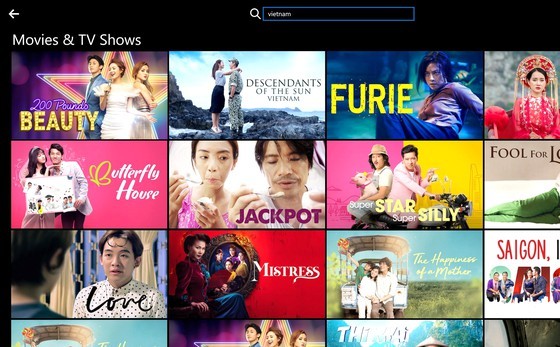
The many cross-border streaming services in Vietnam such as Netflix, iflix, Amazon from the US or WeTV and iQIYI from China have created a bustling market from which consumers are the main benefactors.
Overseas platforms currently have a much bigger catalogue with high image quality and content more appealing to a wide audience, including exclusive content. These sites see a larger number of willing payers even when they charge higher monthly fees compared to Vietnam-based providers.
With the Covid-19 pandemic still raging, needs for on-demand entertainment is higher than ever. Having audiences get used to paid, copyrighted, adless content will help clean out pirate sites and benefit proper entertainment providers, said a Vietnamese online movie provider called DANET.
Its representative however was concerned that overseas providers are getting an unfair edge in the Vietnamese market by not having to pay taxes or undergo strict censorships.
“Current policies and regulations for foreign businesses in this field are not clearly defined, so many violations may slip through the cracks”, DANET stated.
According to the Agency of Broadcasting and Electronic Information, many series and films on Netflix violate standing Vietnamese laws by containing content not appropriate for children like vulgar languages, violence or use of harmful substances. Some of them are considered culturally inappropriate by containing historical inaccuracies and disregarding border-related conflicts.
Netflix is considered by law a TV service provider that collects subscription fee and requires a business license to operate. Therefore, it must comply with censorship requirements in accordance with the laws on press and cinema, as well as the law on children like any other businesses in Vietnam.
Netflix came to Vietnam in 2016 and introduced a Vietnamese interface in August 2018. The Cinema Agency of Vietnam sent an official document to Netflix requesting it to report to competent authorities to legally participate in the television service market in Vietnam.
So far, the Agency has not received any written reply from Netflix stating its authorization to operate in Vietnam through a local representative or due performances of financial obligations according to Decree No. 06/2016/ND-CP on the management, provision and use of radio and television services, said Head of the Agency Vi Kien Thanh.
As it stands, Vietnam’s Law on Cinema has no regulation on managing or sanctioning violations for movie and television service providers via the Internet, obtained through cross-border transmission. Thanh added that these regulations are being looked into and might be revised to accommodate new forms of media.
























